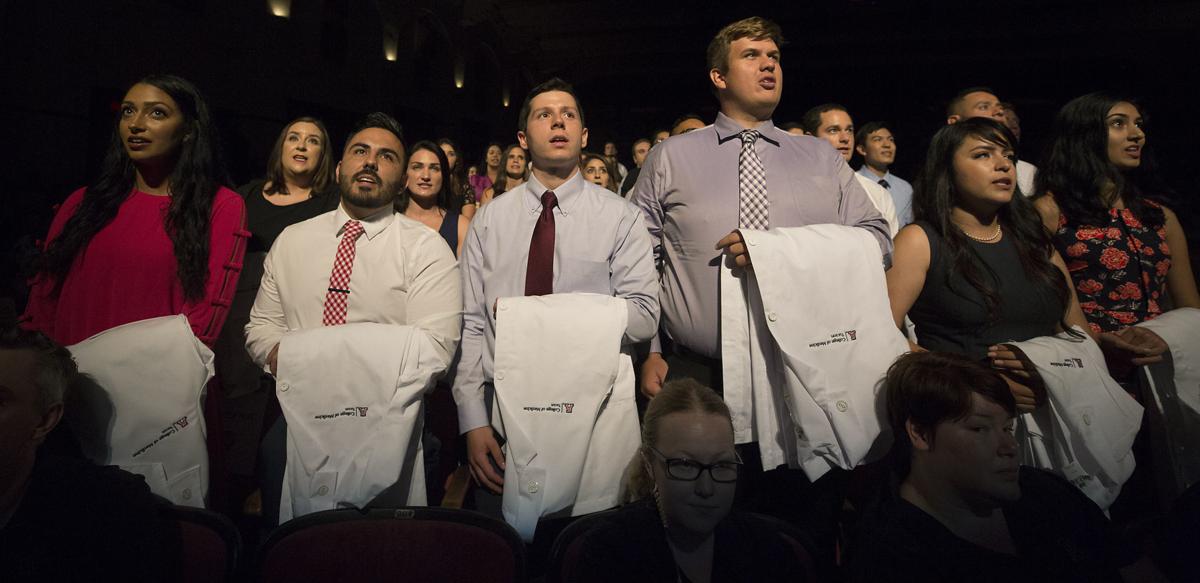The UA Colleges of Medicine in Tucson and Phoenix will provide free tuition to students who agree to practice primary care in Arizona’s underserved communities for at least two years after completing their residency.
In a move to address Arizona’s primary care physician shortage, the UA’s Primary Care Physician Scholarship Program will provide a year of free tuition for every year that a student commits to practicing in rural or urban Arizona communities that lack enough doctors.
With $8 million in annual funding, which was appropriated by the Legislature in May, the UA will provide scholarships for up to 94 medical students — 10% of the class — and will work to increase enrollment for the Phoenix campus.
Beginning in spring 2020, students who are accepted to the program can receive up to four years of free tuition as long as they commit to at least four years of service.
“Students can go away to Johns Hopkins or Harvard or wherever to complete their residency, but if they take this money for their medical school tuition, they have to come back and practice in Arizona. And that’s the endgame. We need more physicians,” said UA President Robert C. Robbins during an Arizona Board of Regents meeting on campus Friday.
Arizona only meets 41% of its primary care physician needs and ranks No. 44 in the United States for number of active primary care physicians.
It is estimated that Arizona needs nearly 600 more primary care doctors to eliminate the shortage today, but as the fourth fastest growing state in the country, this number is expected to increase to over 1,900 by 2030.
Most Arizona primary care doctors work in the two largest urban-metro counties, Maricopa and Pima, which creates barriers to health services for other parts of the state. With this scholarship program, Arizona legislators and UA officials are hoping to address these disparities.
“Ensuring every Arizona resident, whether in rural communities or urban cities, has access to quality health care is a top priority for Arizona,” said Gov. Doug Ducey. “The University of Arizona Primary Care Physician Scholarship is another example of the innovative steps the state is taking to address this critical workforce shortage facing Arizona and the entire nation.”
Students selected to receive a scholarship will be required to return to Arizona within six years after graduating from the UA’s medical school and be trained to practice primary care in one of the following specialties: family medicine, general internal medicine, geriatric medicine, general pediatrics, psychiatry, or obstetrics and gynecology.
Dr. Michael Dake, senior vice president for UA Health Sciences, said the scholarship programs also serves as an opportunity to eliminate a significant financial barrier for students who wish to pursue a primary care field.
“In addition to the dire need for more primary care physicians in the state, the issue of student debt is a major roadblock for many people who have the potential to be great doctors,” Dake said. “It keeps many individuals from even applying to medical school.”
The UA College of Medicine is now accepting applications for spring 2020. They are expecting the selection process to be very competitive.
“Students who graduate from the University of Arizona want to tackle important issues and meet big challenges in society,” said Robbins. “The physician shortage is a major issue facing the state and nation, and I am excited that the University of Arizona will provide scholarships for qualified medical students and get more primary care physicians into underserved areas across the state.”





